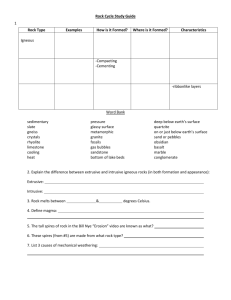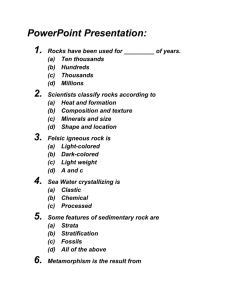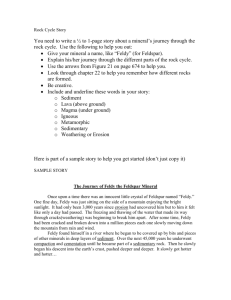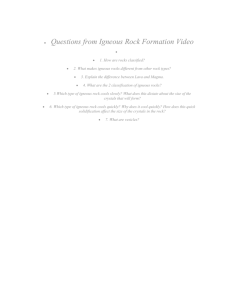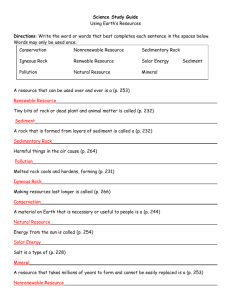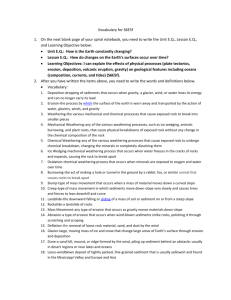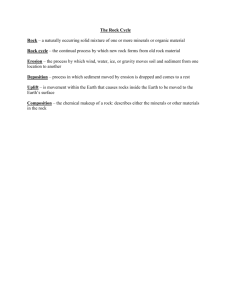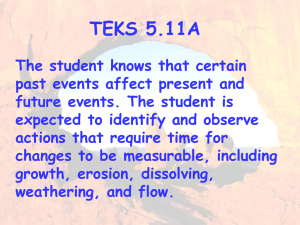BrainPOP Science Key Terms Types of Rock IGNEOUS ROCK
advertisement
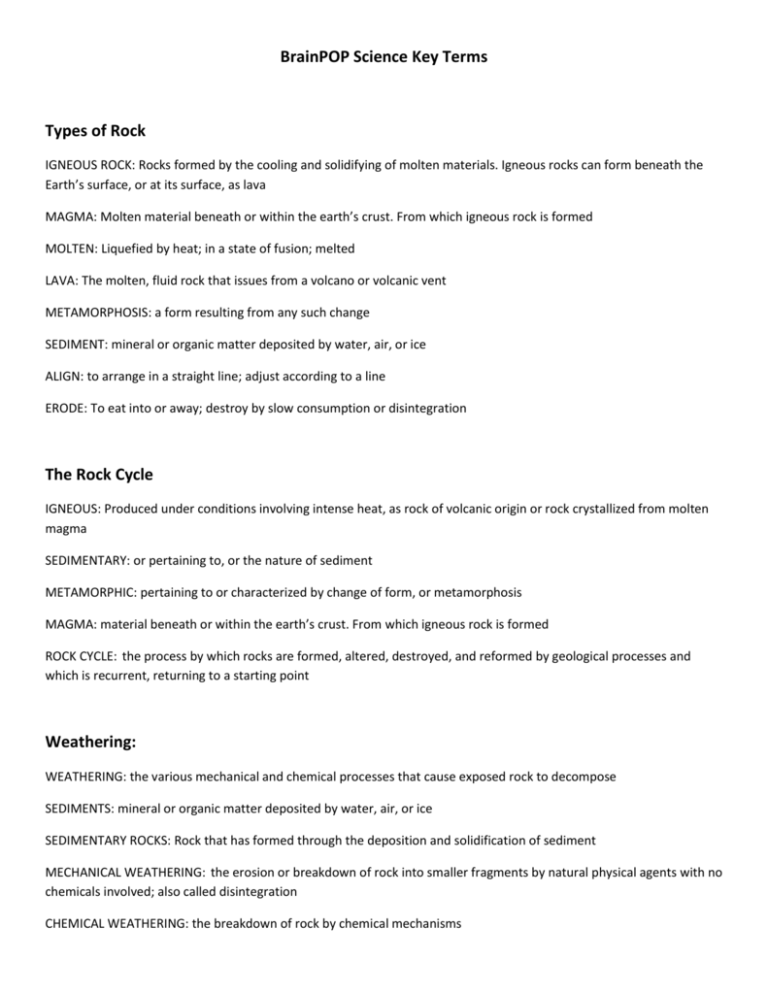
BrainPOP Science Key Terms Types of Rock IGNEOUS ROCK: Rocks formed by the cooling and solidifying of molten materials. Igneous rocks can form beneath the Earth’s surface, or at its surface, as lava MAGMA: Molten material beneath or within the earth’s crust. From which igneous rock is formed MOLTEN: Liquefied by heat; in a state of fusion; melted LAVA: The molten, fluid rock that issues from a volcano or volcanic vent METAMORPHOSIS: a form resulting from any such change SEDIMENT: mineral or organic matter deposited by water, air, or ice ALIGN: to arrange in a straight line; adjust according to a line ERODE: To eat into or away; destroy by slow consumption or disintegration The Rock Cycle IGNEOUS: Produced under conditions involving intense heat, as rock of volcanic origin or rock crystallized from molten magma SEDIMENTARY: or pertaining to, or the nature of sediment METAMORPHIC: pertaining to or characterized by change of form, or metamorphosis MAGMA: material beneath or within the earth’s crust. From which igneous rock is formed ROCK CYCLE: the process by which rocks are formed, altered, destroyed, and reformed by geological processes and which is recurrent, returning to a starting point Weathering: WEATHERING: the various mechanical and chemical processes that cause exposed rock to decompose SEDIMENTS: mineral or organic matter deposited by water, air, or ice SEDIMENTARY ROCKS: Rock that has formed through the deposition and solidification of sediment MECHANICAL WEATHERING: the erosion or breakdown of rock into smaller fragments by natural physical agents with no chemicals involved; also called disintegration CHEMICAL WEATHERING: the breakdown of rock by chemical mechanisms CARBONIC ACID: The acid formed when carbon dioxide dissolves in water, known in the form of its salts and esters, the carbonates Erosion: EROSION: The act of state of eroding; state of being eroded WEATHERING: the various mechanical and chemical processes that cause exposed rock to decompose RIVER DELTA: a nearly flat plain of alluvial deposit between diverging branches of the mouth of a river, often, though not necessarily, triangular CANYONS: a deep valley with deep sides, often with a stream flowing through it GLACIER: An extended mass of ice formed from snow falling and accumulating over the years and moving very slowly, either descending from high mountains, as in valley glaciers, or moving outward from centers of accumulation, as in continental glaciers GLACIAL EROSION: The erosion of glaciers Mineral Identification: MINERAL: any substance that is neither animal nor vegetable TRAIT: A distinguishing characteristic or quality, especially of one’s personal nature HARDNESS: The state or quality of being hard MOHS SCALE: a scale of hardness used in mineralogy LUSTER: The state or quality of shining by reflecting light STREAK (NOUN): a long, narrow mark, smear, or band of color CLEAVAGE: The act of cleaving or splitting FRACTURE (NOUN): a break, breach or split
